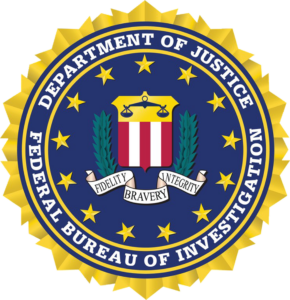Over the past twenty years, the FBI has been tasked with finding out more about how to prevent mass shootings. The definition of “mass shooting” includes incidents where three or more people are killed, per federal statute definition.
Former FBI director James Comey was in charge of finding what — and who — led up to some renowned, rather horrific mass shootings, which included Sandy Hook (2012), San Bernardino (2015), and Las Vegas (2017). Comey was dismissed after four years by President Trump.
The shooting at Sandy Hook has been widely used as a prime example of the damage that most outlets and politicians tout as “gun violence.” A November 2013 report issued by the Connecticut State Attorney’s Office concluded that Adam Lanza acted alone and planned his actions but provided no indication why he did so, or why he targeted the school. A report issued by the Office of the Child Advocate in November 2014 said that Lanza had Asperger’s syndrome and as a teenager had depression, anxiety, and obsessive-compulsive disorder but concluded that these conditions had “neither caused nor led to his murderous acts.”
The FBI curiously made no headway into that, either. The FBI’s gaping investigation holes include 1) a failure to investigate the ties to the treating psychiatrist of Adam Lanza and 2) the internal corruption of the Newtown Police Department with Operation Juice Box. In a nutshell, Operation Juice Box involved selling long guns and drugs, from China, directly from the Newtown police station in Connecticut.
It is important to note that although Comey was not director at that time, he certainly had the ability to, at the very least, disclose to the public his investigative findings into the corruption plaguing the Newtown Police Department prior to and in the aftermath of the mass shooting.
The FBI’s and Comey’s failure to disclose to the public the two above factors led to the passage of arguably the most unconstitutional legislation in American history, such as massive spending on what may be called a “mental health industrial complex” and a gun grab from the American people.
A theme throughout all mass shootings is prior FBI involvement with the mass shooter, chain of custody issues, and misinformation of facts given to the public. These appear to add up to an FBI culture of protecting the public/private billion-dollar behavioral health business our government engages in.
Comey also failed to speak publicly about critical data that he uncovered about Sandy Hook, allowing lawmakers to target gun manufacturers rather than the police corruption and psychiatric drug link to the treating psychiatrist of the shooter. AbleChild’s work led to the arrest of Adam Lanza’s treating psychiatrist by Homeland Security.
Adding insult to injury, the FBI didn’t even protect the chain of custody of Adam Lanza’s body. An employee of the chief medical examiner’s office allowed a family member to view the body during the investigative process.
Let’s now take the San Bernardino shooting as an example. The FBI under the direction of Comey failed with investigative work into the details in the San Bernardino mass shooters; who exactly hired Syed Farook for a critical public health safety position? Instead of focusing on an internal corruption cell within the government, Comey came to the microphones and warned the public not to “over-index” the fact that the FBI had prior contact with Farook prior to the mass murders. He didn’t dispute the media’s claim that as an employee, the shooter’s motive came down to being forced to attend a Christmas party with coworkers. Comey’s FBI crime scene also oddly wasn’t protected after the initial search into the San Bernardino tragedy; the media were invited in, destroying the agency’s ability to gather additional evidence.
In the Las Vegas shooting, Sheriff Joe Lombardo held a press conference on the release of the LVMPD Criminal Investigative Report of the October 1 Mass Casualty Shooting. He said the ten-month investigation had revealed no evidence of conspiracy or a second gunman, and that the gunman’s motive had not been determined. Lombardo said, “[W]hat we have not been able to definitively answer is why Stephen Paddock committed this act.” A report published by the FBI’s Behavioral Analysis Unit in January 2019 said that “there was no single or clear motivating factor” for the shooting.
Cofounder of AbleChild Sheila Matthews asserts, “Jim Comey, the former FBI director, appears to have misled the public on these mass shootings — and failed to share basic facts that not only could have saved lives, but changed the course of legislation that impacts our rights and freedoms.” She continued, “It is AbleChild’s hope that federal hearings are held on the FBI role in mass shootings and evidence collection laws are protected and passed to stop inside agencies such as the FBI from protecting Big Pharma and their distribution partner the behavioral health industry that operates as our mental health system.”
The FBI’s continued failure to decipher key signals in mass shootings seems to point to a deliberate effort to cover for the billion-dollar behavioral health industry, which manages to obtain millions of dollars in state and federal funding after every single one of these mass murders. Critical evidence that most shooters have been found to be on a cocktail of psychiatric drugs magically disappears from the FBI investigations and findings.
After the Virginia Tech shooting, FBI behavioral health analyst supervisor Special Agent Mary Ellen O’Toole said, “There is no typical shooter. They don’t fall within a set of traits and characteristics.” She goes on to say that “there may not be a single thing that can be done to prevent a mission-oriented person from committing an act of violence.” Really?
The bottom line is that the FBI enjoys a level of secrecy on so many levels. With this level of power, the Bureau has the ability to conceal toxicology reports and mental health treatment records that are pertinent to finding the actual common denominator that drive these “mission-oriented killings.”
Why does the FBI not disclose each shooter’s history of long-term mental health treatment? Is it because the public would question these treatments and possibly choose alternatives? Why would the FBI not focus on side-effects from drug treatment, which has evidence linking it to psychological damage and a risk of suicide and violence? This secrecy clearly demonstrates a lack of responsibility and accountability, which makes FBI agents appear to have aligned themselves with the political ideology that is being foisted on the public, without full disclosure of evidence. Compromised and without objectivity, the FBI is failing the American people and overall public safety.




